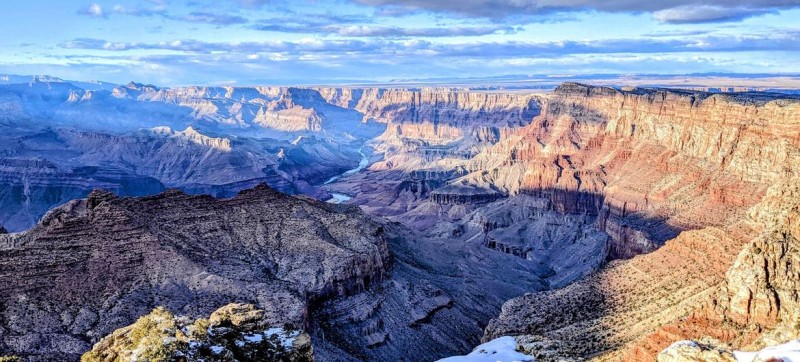UN News/Elizabeth Scaffidi Carved out by the Colorado River, the Grand Canyon, which is located in the United States and was registered on UNESCO’s prestigious World Heritage List in 1979, retraces the geological history of the past two billion years.
UNESCO Director-General Audrey Azoulay told Member States that the decision was “a strong act of confidence, in UNESCO and in multilateralism,” and in the way that the agency was implementing its mandate on culture, education, science and information.
Tweet URL
Reforms and modernisation
UNESCO said that in a letter sent to Ms. Azoulay, the US State Department “welcomed the way in which UNESCO had addressed in recent years emerging challenges, modernised its management, and reduced political tensions”.
The country stopped funding UNESCO in 2011 after the organization extended membership to Palestine. At the time, US funding made up 22 per cent of the agency’s budget.
The United States is a founding member of UNESCO and had withdrawn once before, in 1984, then rejoined in 2003.
The full return of the US as a UNESCO Member State was made possible by an agreement reached by Congress in December 2022, as part of the $1.7 trillion Omnibus Appropriations Bill, authorizing the resumption of financial contributions to the organization.
Fraught history
The suspension of contributions in 2011 took place after a large majority of other UNESCO countries accepted Palestine as a Member State, triggering a 1990 law passed on Capitol Hill, forbidding funding for any international body that admitted the country.
The enabling legislation last December, grants a waiver to that 33-year-old law.
The formal withdrawal from UNESCO by the US occurred on 1 January 2019, with Israel following suit. As of December 2020, the US reportedly owed UNESCO around $616 million in unpaid membership dues.
US Secretary of State, Anthony Blinken, spoke up in Washington in favour of rejoining UNESCO, telling lawmakers in April 2022, that it was important to be a member to help shape its norms and standards, contributing to its critical work in education and artificial intelligence, according to news reports.
Mosul renaissance
In its press release announcing the US decision, UNESCO noted that new initiatives have been launched empowering the organization “to fully tackle contemporary challenges – such as the ethics of artificial intelligence or the protection of the ocean – while emblematic new field campaigns, including the reconstruction of the old city of Mosul, Iraq, have allowed the organization to reconnect with its historical ambitions.”
A new “financing plan” linked to the US returning to the fold, will now be submitted to UNESCO’s General Conference, for Member States’ approval.




Comments are closed.